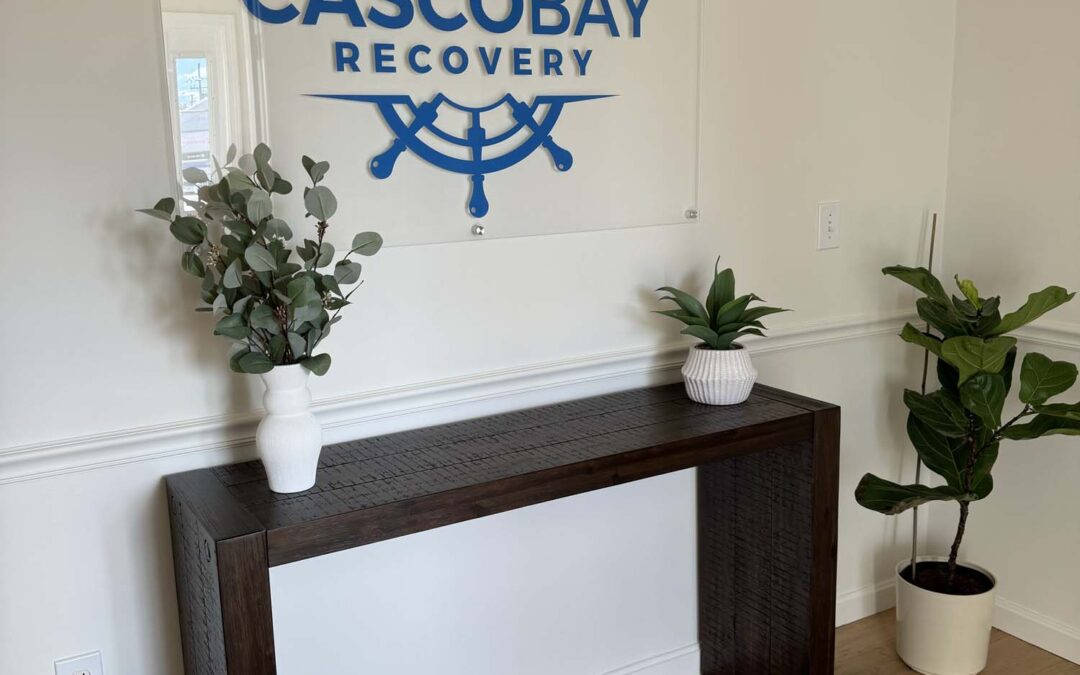Introduction
Opioid use disorder (OUD) is a chronic disease characterized by uncontrollable use of opioids despite harmful consequences. Fortunately, medication-assisted treatment (MAT) offers a highly effective approach to recovery. Vivitrol is one of the medications used in MAT, but it works differently from other options. This article explores Vivitrol vs. other medication-assisted treatments, helping you understand their distinctions and choose the right path for your recovery journey.
What is Vivitrol?
Vivitrol is a brand name for the medication naltrexone, available as a monthly injection. It works by blocking opioid receptors in the brain, preventing the euphoric effects associated with opioid use. This can significantly reduce cravings and the risk of relapse. Vivitrol is not addictive and does not produce a high, making it a valuable tool for those in long-term recovery.
How Does Vivitrol Differ from Other MAT Options?
Several other medications play a role in MAT for OUD. Here’s a breakdown of Vivitrol compared to some common alternatives:
- Suboxone: Suboxone combines buprenorphine, a partial opioid agonist, with naloxone, an opioid antagonist. Buprenorphine partially activates opioid receptors, reducing cravings and withdrawal symptoms. Naloxone discourages misuse by causing withdrawal symptoms if injected. Suboxone is typically a daily film or tablet, and its effects wear off within 24 hours.
- Methadone: Methadone is a full opioid agonist that binds to and activates opioid receptors. It can effectively alleviate withdrawal symptoms and cravings, but it can also produce dependence. Methadone clinics provide highly regulated access to the medication, ensuring patient safety and reducing the risk of diversion. (You can learn more about methadone treatment on the website of the Substance Abuse and Mental Health Services Association (SAMHSA).
Choosing the Right Medication:
The best medication for you depends on several factors, including your individual needs, preferences, and medical history. Here are some key considerations when comparing Vivitrol vs. other options:
1. Stage of Recovery:
- Detoxification: Individuals actively detoxing from opioids may not be suitable candidates for Vivitrol, as it can worsen withdrawal symptoms. Suboxone or methadone is often used during this initial phase.
- Maintenance: Once stable, Vivitrol can be a valuable tool for relapse prevention due to its long-lasting effects. Suboxone and methadone require daily or more frequent dosing, making Vivitrol a convenient option for those seeking less frequent medication administration.
2. Severity of Addiction:
- Vivitrol may be a suitable option for individuals who demonstrate a strong commitment to maintaining abstinence, especially if they have a lower risk of experiencing relapse. It is particularly effective for those who are more confident in their ability to stay away from opioids without experiencing severe cravings. However, for individuals who are dealing with more intense cravings or who have a history of frequent relapses, it is important to consider other treatment options. In such cases, Suboxone or methadone might offer a more comprehensive approach to managing the challenges of early recovery. These medications can help address both the physical cravings and the psychological aspects of addiction more thoroughly, especially during the critical initial stages of the recovery process.
3. Lifestyle and Preferences:
- Vivitrol’s monthly injection schedule can be particularly appealing for those who struggle with daily medication adherence. In contrast, Suboxone and methadone require more frequent administration, which may be inconvenient for some people.
- Additionally, the potential for misuse is a concern with Suboxone and methadone. However, Vivitrol offers a safety advantage with its blocking mechanism, as it cannot produce a high. Thus, Vivitrol may be a more suitable option for those prioritizing convenience and safety in their treatment plan.
4. Medical Conditions:
- It is essential to recognize that certain underlying medical conditions may prevent the use of specific medications used in Medication-Assisted Treatment (MAT). This is why it is incredibly important that your doctor performs a thorough and comprehensive evaluation of your health before beginning any treatment. This detailed evaluation will help identify any potential risks and ensure that your treatment plan is tailored to your individual health needs. By doing so, your doctor can determine the safest and most effective medication for your recovery, taking into account your overall health condition and any preexisting medical issues that could affect your treatment.
Benefits of Vivitrol:
- Long-lasting Effects: One of the major advantages of Vivitrol is its long-lasting impact. The monthly injection provides extended effectiveness, meaning there’s no need for frequent dosing, as with daily medications. This ensures consistent support over time, allowing individuals to focus more on their recovery rather than their medication schedule.
- Reduces Cravings and Lowers the Risk of Relapse: Another key benefit is how Vivitrol helps reduce cravings for substances that could lead to relapse. By significantly mitigating these cravings, Vivitrol plays a crucial role in helping individuals maintain sobriety. As a result, it lowers the risk of relapse, offering valuable assistance in staying on track throughout the recovery process.
- Non-addictive and Does Not Produce a High: Vivitrol stands out because it is non-addictive, which makes it safer compared to other treatments that might carry addiction risks. Moreover, it does not produce any sort of high, further reducing the potential for misuse. Consequently, individuals can focus entirely on their recovery without worrying about becoming dependent on the medication itself.
- May Be a Good Option for Those Struggling with Daily Medication Adherence: For individuals who find it difficult to adhere to a daily medication schedule, Vivitrol offers a more manageable solution. Since it is administered just once a month, it eliminates the burden of daily dosing. This can be particularly beneficial for people who have a hard time sticking to their medication routines due to busy lifestyles or forgetfulness.
Given these significant benefits, it’s clear that Vivitrol offers valuable and convenient support for individuals seeking an effective path to recovery. Its extended action, craving reduction, non-addictive nature, and convenient dosing make it a powerful option for those who need consistent help in managing their recovery journey.
Considerations for Vivitrol:
- Requires a Period of Opioid Abstinence Before Starting Treatment: It is crucial to understand that before beginning Vivitrol, one must abstain from opioids for a specific period. This step is necessary to ensure that the medication works as intended and remains safe for the individual.
- May Not Be Suitable for Everyone, Especially During the Initial Stages of Recovery: While Vivitrol can offer significant benefits to those in recovery, it is important to note that it may not be the right fit for everyone. This is particularly true for individuals who are still in the very early stages of their recovery journey.
- Can Cause Side Effects, Such as Nausea, Headache, and Fatigue: It is also essential to be aware that Vivitrol, like many other medications, can lead to certain side effects. These might include nausea, headache, and fatigue, which could potentially affect the individual’s overall well-being.
Taking these considerations into account is vital when evaluating whether Vivitrol is the most suitable option for your personalized treatment plan.
Making an Informed Decision:
There is no “one size fits all” approach to MAT. The best way to determine the most appropriate medication for you is to consult with a qualified healthcare professional. They will conduct a thorough evaluation, considering factors such as your:
- Individual needs and goals
- Medical history
- Stage of recovery
- Risk of relapse
Your healthcare provider will discuss the potential benefits and risks of different MAT options, helping you make an informed decision about your treatment.
Remember: Seeking help is a courageous step towards a healthier and happier life. With the right support and treatment, you can overcome opioid addiction and achieve lasting recovery.
To learn more about Vivitrol and other MAT options, or to schedule a consultation with our experienced team, please contact Casco Bay Recovery today.
Conclusion
Ultimately, the decision to choose Vivitrol or another MAT option depends on your individual circumstances and goals. It’s essential to work closely with a qualified healthcare professional to develop a personalized treatment plan that addresses your specific needs.
Additional Resources:
- National Institute on Drug Abuse (NIDA): https://www.nih.gov/about-nih/what-we-do/nih-almanac/national-institute-drug-abuse-nida
- Substance Abuse and Mental Health Services Administration (SAMHSA): https://www.samhsa.gov/
By understanding the differences between Vivitrol and other MAT options, you can make an informed decision about your recovery journey. Remember, seeking help is a courageous step towards a healthier and happier life.








